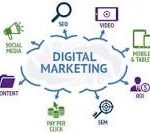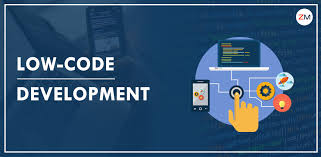What is a Learning Management System?
A Learning Management System (LMS) is a digital platform designed to manage and deliver educational content. It streamlines the process of administering courses, tracking student progress, and facilitating communication between educators and learners. By leveraging technology, LMS platforms enhance the learning experience, making education more accessible and efficient. This blog explores the key features and benefits of Learning Management Systems, and how they are transforming education and training.
Streamlined Course Management
One of the primary functions of an LMS is to streamline course management. Traditional methods of course administration often involve significant paperwork and manual processes. In contrast, an LMS automates many of these tasks, allowing educators to focus more on teaching.
-
Course Creation and Organization: Educators can easily create and organize courses, upload materials, and set up assessments. The LMS provides tools for structuring content, setting learning objectives, and aligning materials with curriculum standards.
-
Enrollment and Scheduling: The LMS simplifies the enrollment process by allowing students to register for courses online. It also enables educators to schedule classes, track attendance, and manage course logistics.
By automating these administrative tasks, an LMS saves time and reduces the risk of errors, ensuring that the focus remains on delivering quality education.
Enhanced Learning Experience
A Learning Management System significantly enhances the learning experience by providing a range of interactive and engaging features. These features contribute to a more dynamic and personalized approach to education.
-
Interactive Content: LMS platforms support various types of interactive content, such as multimedia presentations, simulations, and quizzes. This interactive content helps maintain student engagement and reinforces learning.
-
Personalized Learning Paths: Many LMS platforms offer personalized learning paths based on students’ progress and performance. This customization allows students to learn at their own pace and focus on areas where they need additional support.
-
Accessibility and Convenience: With online access to course materials and resources, students can engage in learning anytime and anywhere. This flexibility accommodates different learning styles and schedules.
By providing interactive and personalized learning experiences, an LMS helps students achieve better educational outcomes and fosters a more engaging learning environment.
Comprehensive Assessment and Feedback
Assessment and feedback are crucial components of the learning process, and an LMS enhances both through integrated tools and features.
-
Automated Assessments: The LMS can automate the creation, distribution, and grading of assessments. This automation ensures timely feedback and reduces the administrative burden on educators.
-
Detailed Analytics: LMS platforms provide detailed analytics on student performance, including test scores, participation rates, and completion rates. These insights help educators identify trends, track progress, and address any areas of concern.
-
Immediate Feedback: Students receive immediate feedback on assessments and assignments, which helps them understand their strengths and areas for improvement. This timely feedback supports continuous learning and development.
By streamlining assessment processes and providing detailed feedback, an LMS enhances the effectiveness of evaluations and supports student growth.
Effective Communication and Collaboration
Effective communication and collaboration are essential for successful learning outcomes, and an LMS facilitates these interactions through various tools.
-
Discussion Forums: Discussion forums allow students and educators to engage in conversations, ask questions, and share insights. These forums foster a sense of community and provide a platform for collaborative learning.
-
Messaging and Notifications: The LMS includes messaging features that enable direct communication between students and educators. Notifications keep students informed about important updates, deadlines, and announcements.
-
Group Projects: The LMS supports group work by providing tools for collaboration, such as shared documents, project management features, and group discussions. This support enhances teamwork and collaborative skills.
By enhancing communication and collaboration, an LMS creates a more interactive and supportive learning environment.
Integration with Other Tools and Systems
A Learning Management System can integrate with various other tools and systems to provide a seamless learning experience.
-
Educational Resources: LMS platforms often integrate with external educational resources, such as online libraries, research databases, and digital textbooks. This integration provides students with additional learning materials and resources.
-
Institutional Systems: Integration with institutional systems, such as student information systems (SIS) and human resources systems, ensures that data is synchronized and accessible across platforms. This integration supports efficient administrative processes and accurate record-keeping.
-
Third-Party Applications: Many LMS platforms support integration with third-party applications, such as video conferencing tools, productivity apps, and content creation tools. This flexibility allows for a customized and enriched learning experience.
By integrating with various tools and systems, an LMS enhances functionality and supports a more cohesive educational ecosystem.
Scalability and Flexibility
Scalability and flexibility are important considerations for educational institutions and organizations, and an LMS offers both.
-
Scalability: An LMS can accommodate a growing number of users, courses, and resources without compromising performance. This scalability makes it suitable for institutions of all sizes, from small training centers to large universities.
-
Flexibility: The LMS provides flexibility in course delivery, allowing educators to offer online, blended, or face-to-face learning options. This flexibility supports diverse learning needs and preferences.
-
Customization: Many LMS platforms offer customization options, allowing institutions to tailor the system to their specific requirements. This customization includes branding, interface design, and feature selection.
By providing scalability and flexibility, an LMS meets the evolving needs of educational institutions and organizations.
Supporting Lifelong Learning and Professional Development
A Learning Management System supports lifelong learning and professional development by offering various resources and opportunities.
-
Continuing Education: An LMS provides access to continuing education courses and certifications, enabling individuals to pursue ongoing learning and career advancement.
-
Professional Development: Educators and professionals can use the LMS to access training programs, workshops, and resources that support their professional growth and development.
-
Self-Directed Learning: The LMS facilitates self-directed learning by allowing individuals to explore topics of interest, complete courses at their own pace, and track their progress.
By supporting lifelong learning and professional development, an LMS contributes to personal and career growth.
Conclusion: The Transformative Impact of Learning Management Systems
In conclusion, Learning Management Systems play a transformative role in education and training by streamlining course management, enhancing the learning experience, and supporting effective communication and collaboration. With features such as interactive content, comprehensive assessment tools, and integration with other systems, an LMS provides a comprehensive solution for managing and delivering education.












